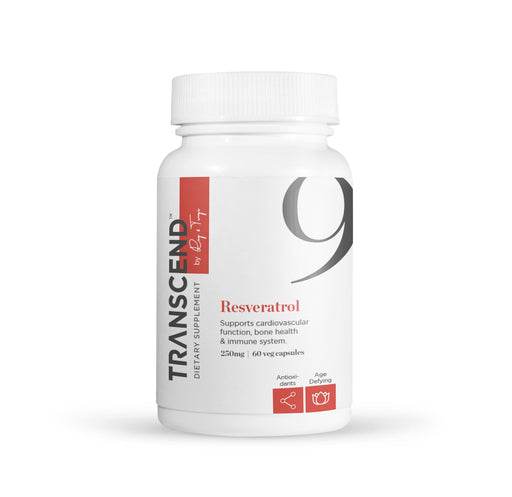
Vitamin B-12, Sublingual
Increased energy Improve mood Fight fatigue Common deficiency Better absorption Vitamin B12 (also called cobalamin) is one of eight water-solu...
View full details
When grocery shopping for your summer get-togethers, you will most likely see displays of the usual essentials – watermelon, corn on the cob, and meat for the grill. However, if you look closely, you'll find that today’s grilling essentials are different than they used to be. Plant based meats have been on the rise for years and offer a satisfying alternative for those who want to eat less meat but don’t want to give up that classic sizzle, smell, and taste of beef.
You may be familiar with the game changers that sparked the mainstream uptick in plant based foods -- Beyond Meat and Impossible Foods. They are the first companies to create plant based burgers that replicate the smell, taste, and feel of beef patties. According to Nature, the recent commercial success of these plant-based meat products has had a profound impact on the modern food industry. The market for plant-based meats in the US was nearly $940 million in 2019, with a 38% increase from two years before. In the past couple of years plant-based foods have been flying off the supermarket shelves and onto our tables. Between the fall of 2019 and 2020 for example, there was a 23% increase in shipments of plant-based proteins to commercial restaurants as compared to a 2% increase in regular meat. And in 2020, the vegan meat substitute market reached $1.4 billion dollars.
Plant based burgers have been praised for lowering blood sugar (they tend to be high in fiber, which slows down the absorption of sugars into your bloodstream) and cholesterol (plants contain no cholesterol). But don’t assume plant based options are always healthier. One of the biggest complaints about plant based meats are the levels of additives, sodium, fat, and calories.
This chart compares the nutrients of some of the most popular fast food beef burgers versus the most popular plant based burgers, as published in Tufts University’s Friedman School of Nutrition and Science Policy’s Health & Nutrition Newsletter:

While plant based burgers only offer a slight reduction in fat content, Dr. Chana Palmer Davis writes, “An average 80/20 beef patty contains nearly 20 grams of fat, of which about half are saturated fats… The most decadent of the new veggie burgers contain the same or slightly less total fat, but the mix is more favorable – less saturated fat (5 to 8 grams per patty) and more unsaturated fats. Reducing saturated fats is a win for heart health – as long as you replace them with unsaturated fats, rather than with sugars. Furthermore, most faux-meat burgers use coconut oil as their source of saturated fat, which may be less harmful than the saturated fats found in beef.”
So, while "next generation" plant based burgers are not a good replacement for vegetables or minimally processed "old school" veggie burgers, they are certainly worth considering as a replacement for meat burgers, especially if you have high blood pressure, diabetes, cardiovascular disease, or obesity.
The most significant benefits of plant based meats are more global in nature and include improving animal welfare, reducing the amount of energy, water, and land required to produce food, and decreasing foodborne illnesses, antibiotic resistance, and infectious disease.
This growing phenomenon begs the question, what makes meat meat? Meat can be categorized in three ways: 1) Animal Based Meat (ABM) – the original meat that most of us grew up eating, 2) Plant Based Meat (PBM) – the familiar veggie and soy burgers that have recently evolved into next generation meat replicas, and 3) Cellular Based Meat (CBM) – meat produced by cultivating cells rather than farming animals.
According to Tufts University’s Friedman School of Nutrition and Science Policy, “meat (be it from a cow, pig, chicken, or other animal) is muscle, and muscle is essentially protein with some fat, connective tissue and blood vessels running through it.” These properties are not easy to replicate, yet with the help of artificial intelligence (AI), scientists have recently honed in on the optimal combination of the right plant based fats and proteins to honestly replicate the cooking properties, texture, and feel of meat.
According to Nature, in order to create good plant based meat products, scientists must understand the molecular and physiciochemical properties of plant-derived ingredients, how they can be assembled into structures that mimic those found in animal products, and how these structures influence the physical chemistry and sensory properties (taste, sight, smell, and touch) of the end product.
With AI, scientists are now able to combine molecules from hundreds of thousands of edible plants and see the outcomes in a simulation, ultimately learning the best combinations to replicate Animal Based Meat. And they are doing this in a fraction of the time it would take humans. Before AI, scientists had to follow a series of steps, beginning with searching the planet for edible plants, followed by a thorough analysis of each candidate. They identified how the plants were made: from the molecules, to how each component worked with one another. These details were then inserted in a database containing millions of entries.
One of the key factors in the success of AI is computational power. And it is only in the past three years that AI has had access to enough computational power to do anything impressive. The amount of computation devoted to training the best AI models since 2012 has doubled every three and a half months, even with increasing price performance. That represents a 300,000 fold increase in the past nine years. This has opened the door for AI to learn from large scale models built from a multitude of data sets. In this case -- plant molecules.
With these increasingly powerful technological tools, we are on the cusp of making foods healthier, designing them to have all of the vitamins and minerals we need as well as fiber and naturally occurring plant based compounds so that they taste good and are affordable.
In the next ten to fifteen years there will be another profound revolution in the food industry as we move away from slaughtering animals and toward growing meat through in vitro cloning of muscle tissue. This shift will be part of a larger trend in cellular agriculture, in which we produce meat and other foods through cells rather than whole organisms or animals. There is no reason to create a whole animal to get the parts that we want to eat. The first “cultured meat” burger has already been eaten. While the idea of growing meat in a lab may sounds strange, keep in mind that a few years ago we didn’t expect plant based burgers to actually taste, smell, and chew like beef burgers. There are currently dozens of start-up companies around the globe working to bring Cellular Based Meat (CBM) products to market.
While eating CBM burgers may seem like a far off scenario, it is actually closer than you think. Remember, it’s only very recently that we’ve become accustomed to cars that drive themselves and mRNA vaccines that literally reprogram our biology away from disease, treating our genetic code like software. These did not seem like near term innovations ten years ago. According to Ray Kurzweil, that’s because we tend to assume the future will unfold in a linear fashion, even though progress is advancing exponentially. We tend to think like our forbears who expected the future to be pretty much like the present, which had been pretty much like their past. They were likely to have thought, “If I continue on this path and that predator up ahead continues on its path, we will intersect and I will be in trouble, so I better change course.” This linear approach to anticipating the future worked so well for our ancestors that it became hard wired in our brains. Yet, as information technology pervades every industry, including food, progress is happening exponentially. The paradigm shift rate is now doubling every decade, so the twenty-first century will see 20,000 years of progress at today’s rate. That’s why the pace of progress tends to surprise us. Thinking linearly causes us to get blindsided by the exponential speed of innovation.
As algorithms continue to become more sophisticated and the power of computation grows exponentially, AI will not only engineer food to be healthier, it will also create an abundance of it at low cost. Ultimately, the merging of AI and food has the potential to end animal suffering and significantly reduce human hunger, disease, and poverty.
So, as you gather around the grill with your family and friends this summer, enjoy a plant based burger, open your mind to exponential thinking, and know that animal-free meat is just around the corner.

Increased energy Improve mood Fight fatigue Common deficiency Better absorption Vitamin B12 (also called cobalamin) is one of eight water-solu...
View full details
Combat internal aging Protect cells from radiation damage Increase antioxidant capacity Take with lecithin for better absorption Optimal dose for...
View full details
2022 update: Future batches of this product will use a Ubiquinol product that is a greenish capsule rather than a red softgel Bioavailable form o...
View full details
A Kurzweil + Grossman Formula Continued Synergy between Science and Convenience Convenient dosage packets Top anti-aging products Increase energy...
View full details
Leave a comment